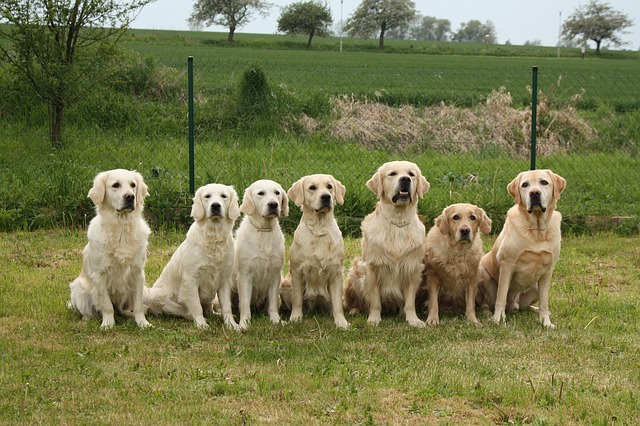
What started as rescuers paying $5 or $10 for dogs that breeders couldn’t otherwise sell has turned into a massive market, with rescuers willing to spend as much as $5,000 or more per dog from commercial breeders at one of two auctions held in Missouri every year.
Some breeders now make more money selling dogs to rescuers than they do from other sources. Rescuers who buy dogs from these auctions claim that they are saving dogs from a lifetime of breeding, but they often wind up unknowingly bidding against other rescuers and paying exorbitant amounts of money to rescue dogs from what they assume will be a lifetime of misery in a puppy mill.

According to The Washington Post:
“Bidders affiliated with 86 rescue and advocacy groups and shelters throughout the United States and Canada have spent $2.68 million buying 5,761 dogs and puppies from breeders since 2009 at the nation’s two government-regulated dog auctions, both in Missouri, according to invoices, checks and other documents The Washington Post obtained from an industry insider. At the auctions, rescuers have purchased dogs from some of the same breeders who face activist protests, including some on the Humane Society of the United States’ ‘Horrible Hundred’ list or the ‘No Pet Store Puppies’ database of breeders to avoid, maintained by the American Society for the Prevention of Cruelty to Animals.
Most rescuers then offered the dogs for adoption as ‘rescued’ or ‘saved.’”
Many commercial breeders have been put out of business and fewer dogs are winding up in shelters and at rescues every year as adoption becomes more popular. Some specialty rescue groups are now finding it difficult to get the breeds that people want to rescue. For example, one rescue group dedicated to Golden Retrievers had 40 percent fewer dogs come through their doors in 2016, so they turned to the auction to get dogs that would fill the demand they were facing. These rescue groups then turn around and tell people that buying dogs from auctions is rescuing them from puppy mills.

Will Yoder, a commercial breeder of Cavalier King Charles Spaniels, told The Washington Post:
“We have breeders that breed for the auction. It’s a huge, huge underground market. It’s happening at an alarming rate.”
Of the 86 rescue groups that have been identified as having purchased dogs from auctions, about 50 make no mention of the practice on their websites. 20 of the groups described the practice as “puppy mill rescue” or “auction rescue.”
The debate is whether saving individual dogs from a potential life of breeding is worth handing over so much money to large-scale breeders.
Bob Hughes is the owner of Southwest Auction Service, the biggest commercial dog auction in the country. He said:
“I’m not going to lie about this: Rescue generates about one-third, maybe even 40 percent of our income. It’s been big for 10 years.”
Most of these rescues raise money from donations specifically for the purpose of rescuing dogs from these auctions. For example, an auction at Southwest on Nov. 22, 2014 was going to have 130 Cavalier King Charles Spaniels from a breeder who was going out of business. One rescue raised $188,815 from a GoFundMe.com campaign and another raised $157,955 from a YouCaring.com fundraiser for the specific purpose of saving dogs at this auction.

At this auction, commercial breeder Yoder won two Cavaliers for $3,600 and $3,950. Alabama-based rescuer Angie Ingram pursued Yoder after the auction and eventually convinced him to sell the dogs to her for $10,000 each. Ingram had been collecting PayPal donations specifically for this auction. Yoder told The Washington Post:
“I was just curious. I didn’t think they would actually pay it. But it’s not their money, so money wasn’t an issue. I’d never sold a dog for $10,000, so I just thought, ‘Let’s see.’”
Documents exist which clearly show that bidders affiliated with the nonprofit Cavalier Rescue of Alabama, where Angie Ingram is listed as the animal welfare program director, have paid $406,872 to buy 172 dogs and puppies at auction since 2014 — an average price of $2,365 per dog. According to a link on their Facebook page, more than half the dogs the rescue placed in homes were bought from an auction.
After the Washington Post article was published, a post on the Facebook page said it pays an average price of $1,600 per dog at auction. They continued:
“We have NEVER profited off an auction dog. We are in the hole with EVERY single dog that we rescue from auction. We know this going into it and it is never about the money, it is only about saving lives.”
Penny Reames is a Kansas rescuer who has attended auctions for many years and transfers dogs to Northern New England Westie Rescue in New Hampshire. She said:
“Originally, rescues attended auctions to get the old and the sick dogs, and we paid very little for them. We don’t see those dogs so much anymore. Now it is primarily puppies who did not get bought by the brokers for one reason or another.”

Many rescuers told The Washington Post that the long-time rescuers would talk amongst themselves before the auction to decide who would bid on which dogs so that they wouldn’t bid against each other, therefore raising the prices. Unfortunately, new rescuers show up all the time who aren’t familiar with that protocol and bid against each other. That’s typically how thousands of dollars are spent on one dog.
Some of the dogs bought from commercial breeders at auction even find themselves in places like California that are actively fighting against puppy mills by requiring all dogs sold in pet stores to be from a rescue or nonprofit.
Gary Phillips is a district president with Northeast Oklahoma Pet Professionals and is on the ASPCA’s “No Pet Store Puppies” warning website. He recently sold a 19-month-old English Bulldog that was too old to go to a pet store and had allergies that made her unfit for breeding to a California-based rescue for $1,750, which is more than he would have made by selling that same dog to a pet store. He told The Washington Post:
“A breeder friend of mine said she’s thinking about saving her puppies until they get about a year old and take them to the auction. The rescue people will pay more than the pet-store brokers.”

Southwest owner Bob Hughes said:
“In their minds, the rescuers think they’re better. The industry is all alike. We’re all supplying puppies and dogs to the general public in some form or fashion.”
What do you think? Are rescues saving dogs from puppy mills by buying them from auctions? Or is their passion for rescue actually lining the pockets of commercial breeders? Let us know what you think in the comments!
(H/T: The Washington Post)
via Whisker Therapy